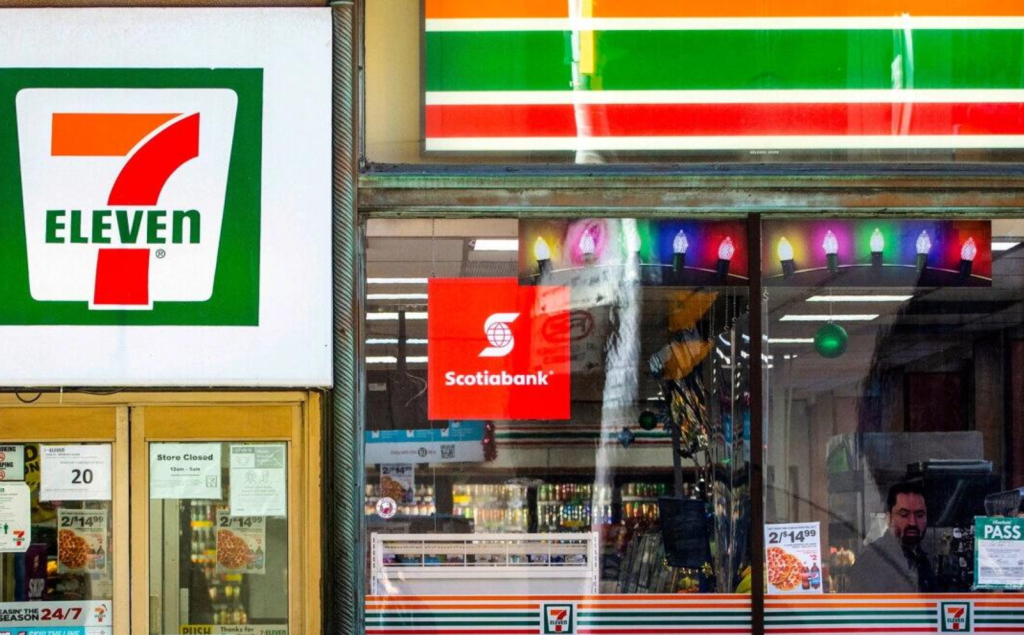Convenience store giant 7-Eleven is set to close 444 underperforming locations in North America as part of a strategy to combat declining sales and improve operational efficiency. This decision represents over 3 percent of its combined U.S. and Canadian store footprint, which exceeds 13,000 locations. The closures are anticipated to yield around $30 million in operating income benefits for the company this fiscal year. Acknowledging the challenging landscape for retail due to high interest rates and inflation, 7-Eleven aims to streamline its operations and refocus its efforts on maintaining growth amid a tough consumer spending environment, particularly affecting lower- and middle-income shoppers. The company noted in its financial forecast that merchandise sales at existing stores have dipped in dollar terms, reflecting the pressures consumers face financially.
The decline in traditional revenue streams for 7-Eleven is attributed to various factors that have contributed to diminishing traffic and sales figures. Many consumers are struggling financially, with substantial portions living paycheck to paycheck, compounded by reductions in government assistance programs such as SNAP. The growing trend of online retailing has also siphoned sales away from brick-and-mortar stores, while unexpected operational disruptions, such as a cyber outage, have further impacted performance. Additionally, the company highlighted a significant decrease in tobacco sales—cigarettes alone represented 21.5 percent of total convenience store sales in 2023, with usage decreasing by 26 percent since 2019. This decline in tobacco consumption reflects broader health awareness trends and has had a pronounced negative effect on convenience store revenues, especially since this segment typically drives significant sales volume.
To address these challenges and ensure long-term viability, 7-Eleven is implementing a comprehensive repositioning strategy. The closure of stores is just one element of a broader plan that includes enhancing its proprietary food offerings, ramping up digital sales initiatives, and optimizing store networks for greater efficiency. To adapt to the economic climate, the company revised its sales projections downward for the latter half of 2024 but remains optimistic about a rebound in growth by 2025. This focus on rejuvenating sales avenues and minimizing operational costs is vital for 7-Eleven as it navigates these testing market conditions.
Despite the operational challenges, 7-Eleven’s parent company, Japan’s Seven & i Holdings, has ambitious expansion plans beyond North America. The corporation has outlined intentions to develop a network of 50,000 stores in various regions, excluding Japan and North America, by the end of December 2025. This growth strategy involves penetrating 30 countries and regions, showcasing the parent company’s commitment to global expansion while responding to market dynamics at home. The magnitude of these plans suggests that 7-Eleven intends to leverage its established brand and operational expertise to capture new markets while working through its domestic challenges.
Amid these operational shifts, Seven & i Holdings is also responding to potential buyout advances. Recently, the firm rejected a cash offer from Canadian convenience store operator Alimentation Couche-Tard, which it deemed undervalued the company’s worth and unfit for shareholder interests. In the wake of the rejected proposition, Couche-Tard submitted a revised buyout proposal, prompting 7-Eleven’s parent to maintain confidentiality regarding ongoing discussions. Seven & i Holdings has expressed openness to offers that align better with its perceived intrinsic value, emphasizing its position and priorities regarding shareholder interests and corporate strategy.
Overall, the restructuring efforts at 7-Eleven signal a crucial moment for the iconic convenience store chain as it seeks to adapt to changing consumer habits and a challenging economic environment. By closing underperforming locations, refining its operational tactics, and pursuing international growth, the firm is navigating its path through adversity while keeping a strategic eye on future opportunities for stability and expansion in an evolving retail landscape.

